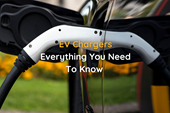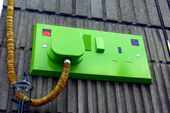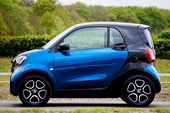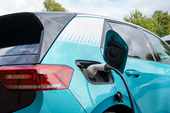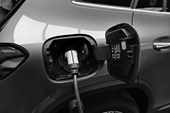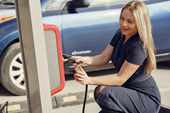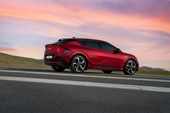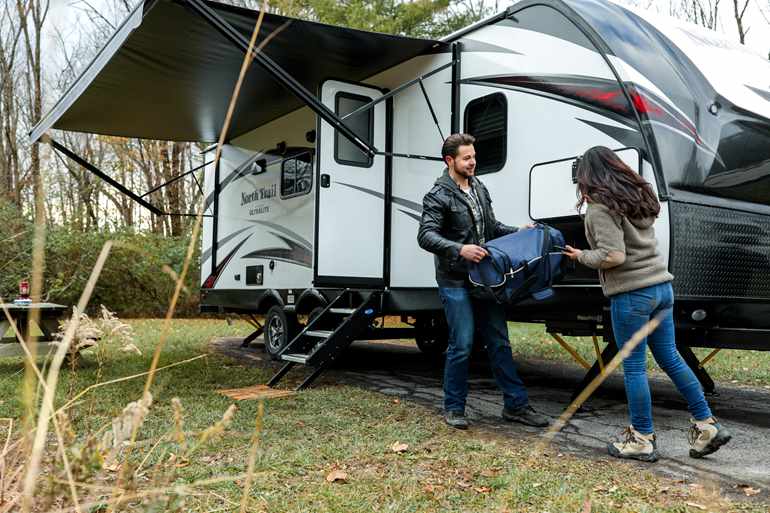
Can Electric Cars Tow a Caravan?
Electric Cars & Caravans, Do They Mix?
Can an electric car tow a caravan? It might sound like a simple question – but there isn't necessarily a straightforward answer. Many facets of electric cars such as their instant power delivery sound like they should mean these cars are ideal candidates for towing. In comparison, traditional diesel and petrol engines take time to get up to full power, meaning they are disadvantaged when it comes to getting a caravan moving at slow speeds.
This power rating is known as torque, and the best vehicles for towing are those that produce as much torque as possible at very low engine speeds. Electric cars have an inherent advantage, as they can produce maximum torque from the moment their motor starts running. And yet, despite this - relatively few electric cars come with a towing rating.
"If you are considering purchasing or leasing an electric vehicle with the intention of towing a caravan, it is definitely worth checking the exact make and model, to ensure that it does have the proper approval in place to legally tow a caravan."
What Does A Car Need In Order To Tow A Caravan?
In order to legally tow a caravan on UK roads, the manufacturers need to apply for approval. This is also known as type approval or homologation. However, many of the major electric vehicle manufacturers have simply not applied for this. The outcome of this is that no matter whether these electric cars are technically capable of towing, they cannot be used for this purpose.
In spite of their impressive power delivery, there are a number of reasons that electric vehicles are not necessarily optimal for caravan towing. Firstly, towing a caravan would massively increase the load on the car, which would likely result in the battery being drained a lot faster than usual. This, combined with the fact that electric cars are typically quite heavy compared to petrol and diesel cars mean that most of these cars have simply not been designed with towing as a priority.
The regenerative braking system in electric vehicles uses the momentum from the car slowing down to help recharge the car’s battery. Adding more weight in the form of a caravan could interfere with this, potentially producing excessive momentum during braking – which could eventually damage the car.
Read More: How Much Do Electric Vehicles Depreciate?
The Impact Of Towing On Battery Life In Electric Cars
Typically electric cars are well suited to shorter journeys. This is particularly true in busy cities where the automatic gearbox makes driving in congested traffic easier. The range of an electric car is dictated by the battery, which would likely be reduced significantly through towing. Of course, the same is true for a petrol or diesel engine, in the sense that you get fewer miles per gallon when towing a caravan. However, the capacity of these engines means you normally have greater resilience than an electric car, which under normal circumstances may only get 100-150 miles from a single charge. If this was drastically reduced because of the additional weight of a caravan, drivers would likely find themselves needing to stop and recharge far more frequently.
Choosing The Right Electric Car For Towing A Caravan
Whilst most electric cars are not certified for towing – there are some manufacturers who have worked through the process. If you are considering purchasing or leasing an electric vehicle with the intention of towing a caravan, it is definitely worth checking the exact make and model, to ensure that it does have the proper approval in place to legally tow a caravan. A relatively small number of vehicles in the UK have the correct certification, amongst those that do are some of the recent models from Jaguar and Mercedes, as well as Tesla and Audi.
It is also possible that a hybrid car may offer a better solution for your towing needs. Because hybrid cars utilise a combination of normal engine power as well as electric, they are not as impacted by the issues outlined above. Many manufacturers of plug-in hybrids have secured the necessary approvals, including some models from Volvo, BMW and Mitsubishi.
Check out our other blogs to learn more car tips or find out how Gap Insurance can protect your vehicle.



